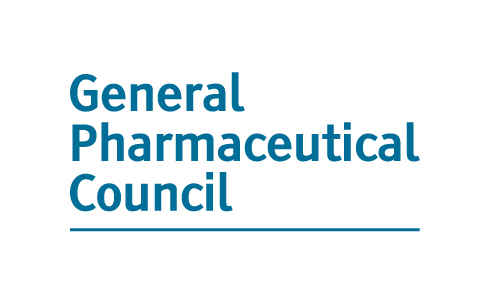THINKING OF BUYING A PHARMACY?
)
In this helpful article, Vinku Shah FFCA, Partner at Silver Levene, offers practical advice for first-time pharmacy buyers. Visit our stand M20, with associated company Modiplus, at the Pharmacy Show.
Acquiring the first pharmacy can be a challenge to most pharmacists especially when they do not have the necessary skill in reading the numbers presented in terms of the target pharmacy's performance and how to interpret these in order to arrive at a valuation for the purpose of submitting an offer.
We have helped a number of first-time buyers over the years to acquire their first pharmacy and below we break down the steps you should take to make the acquisition a smooth process for you:
- Assessing the risk
Once the target pharmacy has been identified, you should seek advice of a pharmacy specialist accountant in assessing the risks and advise if it would be a viable investment so that you are able to make an informed decision. At this point, the accountant will gain an understanding of your knowledge of the target pharmacy and be able to provide you with further guidance on income/profit generation and growth potential.
- The valuation of the business
Based on the information already provided by the vendor's agents, you should arrange for valuation from your appointed accountant and request them to provide a range of offer to submit. This is to ensure that you are not overpaying for the target pharmacy and bidding within sensible parameters.
- The negotiation process
Sometimes when the initial offer is not accepted, a negotiation may take place and you should seek guidance on how to go about it with a view to successfully bidding for the target pharmacy.
- Financial and tax advice whether an asset purchase or a company purchase
The target pharmacy may be sold as an asset sale which usually happens when a chain is selling one of its pharmacies or it could be a company sale whereby the vendor(s) may own only one pharmacy and are selling the company's shares (this is common when the vendor(s) are retiring pharmacists).
Each of these transactions will have their own financial and tax implications that will need to be considered at the time of acquisition and we will provide sound advice in either case with a view to maximising your tax benefit and protecting you from over-paying through inadequate due diligence.
- Accounts and tax due diligence
This is the crux of the whole transaction and our advice to all (first time buyers as well as those expanding) not to compromise on this. You should ensure that your advisors carry out a thorough and an in-depth review of the accounting records and information provided by the vendors, conduct their own independent checks to support the figures presented and liaise with you throughout highlighting areas of concern.
One of the major risks, for example, in a company purchase is that there may be undisclosed liabilities or overstated assets and if this is not accurately verified, you could end up paying a lot more to the vendors potentially leading to long standing disputes to recover sums overpaid. Litigation could take years, is a distraction and very costly indeed. It is far better to seek professional advice from the outset from an experienced firm then to have to face a dispute after the acquisition.
- Financial and tax aspects of the asset/share purchase agreement
The asset/share purchase agreement is a binding agreement between the parties encapsulating the mechanism of the sale price, payment terms, financial and tax warranties, indemnities and tax covenant etc. These agreements should be reviewed in detail, particularly to the financial and tax matters to ensure that and any risks are identified and mitigated through requesting relevant clauses be inserted/removed in the agreement.
- Loan to finance the purchase
The acquisition is most likely to be financed by borrowing from lenders and there are a number of pharmacy specialist lenders who understand the community pharmacy business and are willing to work with ambitious pharmacists/entrepreneurs and to help them grow. Each case is judged on the creditworthiness/security of the borrower.
- Business plans, cashflow and profit forecasts
You will be required to produce business plans, cashflow and profit forecasts which will be required by the lenders to secure the finance for the acquisition and these should be prepared by your professional advisers.
- VAT/PAYE registrations
Within 4 weeks of completion date, you should ensure registration with the relevant authorities for all taxes for example VAT, PAYE, Self-assessment, etc.
- On-going accounting/tax services
Post completion, you will require a range of compliance services like bookkeeping, MTD compliant VAT returns, payroll, management accounts, annual accounts, corporation tax, personal tax, tax planning, financial services, etc. You should ensure that you speak to a pharmacy specialist accountant so that you save valuable time which could be utilised in growing your newly acquired business.
- Other pharmacy specialist service providers
There are a number of pharmacy specialist service providers such as solicitors, lenders, stock takers, etc and we recommend using these professionals as they understand the business and its requirements thereby saving valuable time and costs.
Silver Levene has over 30 years of experience in this sector and have helped a number of first-time buyers over the years to acquire their first pharmacy. Several of our clients have also transitioned into multiple pharmacy owners under our specialist guidance and support through the years.
Published in Independent Community Pharmacist in July 2023. The article is based on current legislation and practice, and is for guidance only. Specific professional advice should be taken before acting on matters mentioned here. Vinku Shah FCCA, is a Chartered Certified Accountant and Partner at Silver Levene LLP. He can be contacted on 020 7383 3200 or vinku.shah@silverlevene.co.uk.


)
)
)
)
)
)
)
)
)
)
)
)
)
)
)
)
)
)

.png/fit-in/500x500/filters:no_upscale())
)
)
)
)
)
)
)
)
)
)
)
)
)
)
)
)
)
)
)
)
)
)
)
.png/fit-in/1280x9999/filters:no_upscale())
)
)
)
)
)
